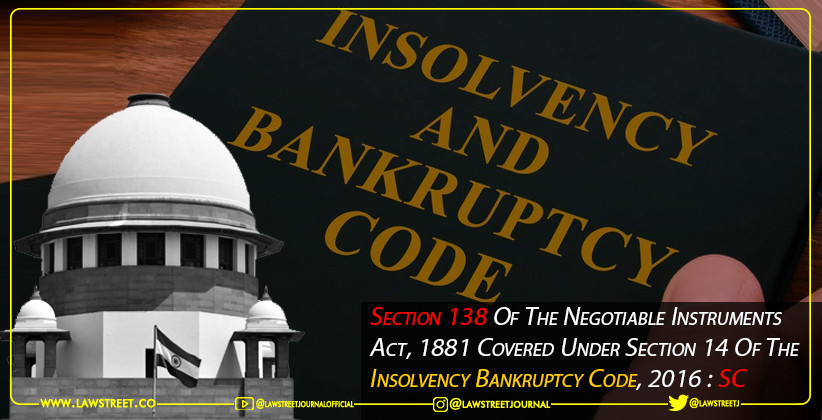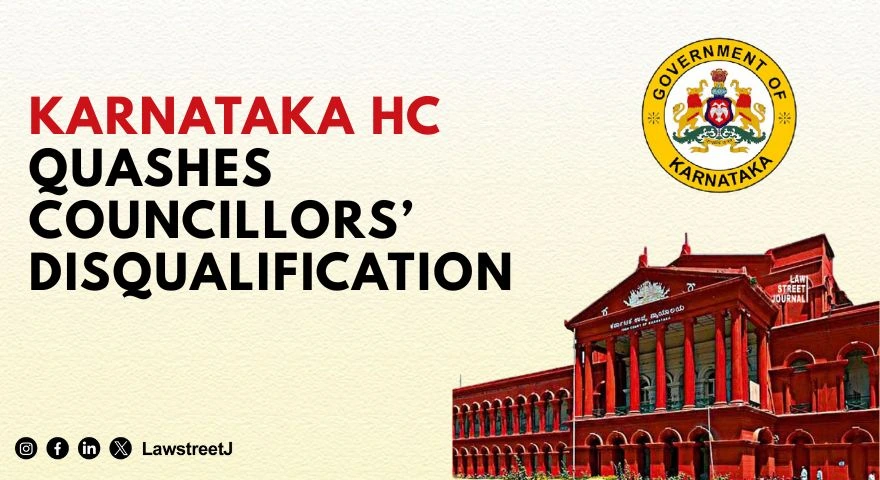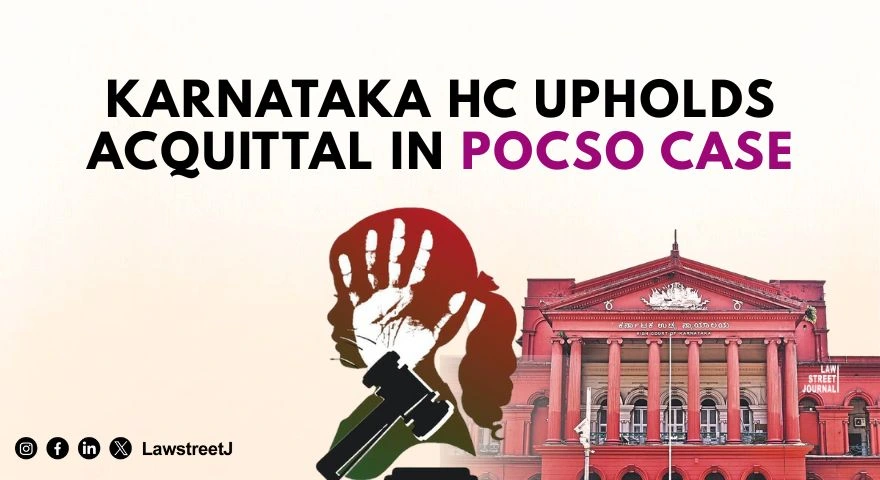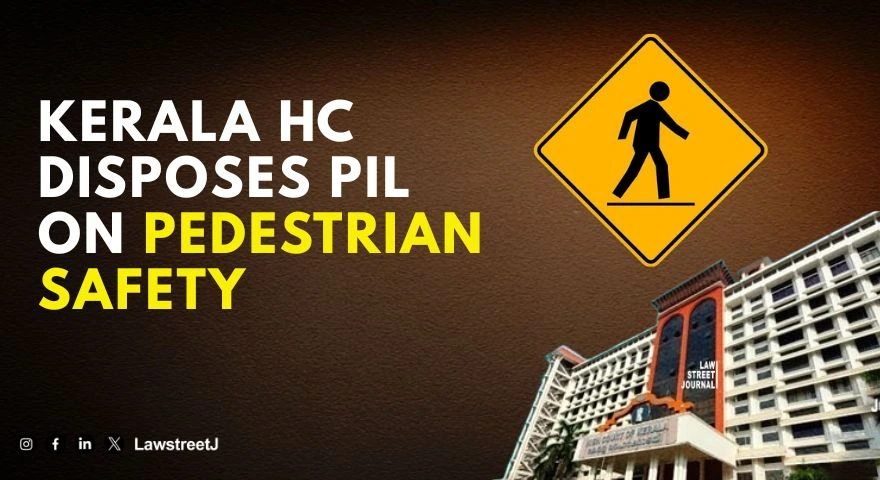On Monday( March 1, 2021), the Supreme Court held that criminal proceedings for dishonour of a cheque under Section 138 of the Negotiable Instruments Act, 1881 against the corporate debtor is covered under section 14 of the Insolvency Bankruptcy Code (IBC), 2016.
Justice RF Nariman says, We hold that a Section 138/141 NI Act proceeding against a corporate debtor is covered by Section 14(1)(a) of the IBC
The Three-judge bench of the Supreme Court comprising of Justices RF Nariman, Navin Sinha and KM Joseph delivered on a few petitions, P Mohanraj and others v M/s Shah Brothers Ispat Ltd and connected cases, which challenged the continuation of criminal trial under Section 138 NI Act during the pendency of liquidation proceedings in the National Company Law Tribunal(NCLT).
The Court observed, ...for the period of moratorium, since no Section138/141 proceeding can continue or be initiated against the corporate debtor because of a statutory bar, such proceedings can be initiated or continued against the persons mentioned in Section 141(1) and (2) of the Negotiable Instruments Act. This being the case, it is clear that the moratorium provision contained in Section 14 of the IBC would apply only to the corporate debtor, the natural persons mentioned in Section 141continuing to be statutorily liable under Chapter XVII of the Negotiable Instruments Act
The Moratorium was to be applicable only to the corporate debtor and the case with regard to the cheques, the proceedings were to be continued against natural persons in-charge of the corporate debtor.
The court considered the issue, saying, whether the institution or continuation of a proceeding under Section 138/141 of the Negotiable Instruments Act can be said to be covered by the moratorium provision, namely, Section 14 of the IBC
The Supreme Court disagreed with the Bombay and Calcutta High Court.
The Court said, form a scheme which shields the corporate debtor from pecuniary attacks against it in the moratorium period so that the corporate debtor gets breathing space to continue as a going concern in order to ultimately rehabilitate itself.
The sweep of the provision is very wide indeed as it includes institution,continuation, judgment and execution of suits and proceedings .It is important to note that an award of an arbitration panel or an order of an authority is also included. This being the case, it would be incongruous to hold that the expression "the institution of suits or continuation of pending suits" must be read disjunctively as otherwise, the institution of arbitral proceedings and proceedings before authorities cannot be subsumed within the expression institution of "suits" which are proceedings in civil courts instituted by a plaint (see Section 26 of the Code of Civil Procedure, 1908). Therefore, it is clear that the expression "institution of suits or continuation of pending suits" is to be read as one category, and the disjunctive "or" before the word "proceedings" would make it clear that proceedings against the corporate debtor would be a separate category. What throws light on the width of the expression "proceedings" is the expression "any judgment, decree or order" and "any court of law,tribunal, arbitration panel or other authority". Since criminal proceedings under the Code of Criminal Procedure, 1973 ["CrPC"] are conducted before the courts mentioned in Section 6, CrPC, it is clear that a Section138 proceeding being conducted before a Magistrate would certainly be a proceeding in a court of law in respect of a transaction which relates to a debt owed by the corporate debtor"
Last year, a notice was issued by Justices UU Lalit and Aniruddha Bose on whether NCLT's moratorium during corporate insolvency resolution process will bar complaint under Section 138 NI Act. The High Court at Madras observed that, The Section 138 of Negotiable Instruments Act is a penal provision which empowers the court of competent jurisdiction to pass the order of imprisonment or fine. It is not the civil proceedings and even fine imposed by the criminal court cannot held to be a money claim or recovery against Corporate Debtor. It is seen from the above provision, the criminal proceedings is not covered under the prohibition and as such the petitioner cannot have a shelter under Section 14 of Insolvency and Bankruptcy Code"








